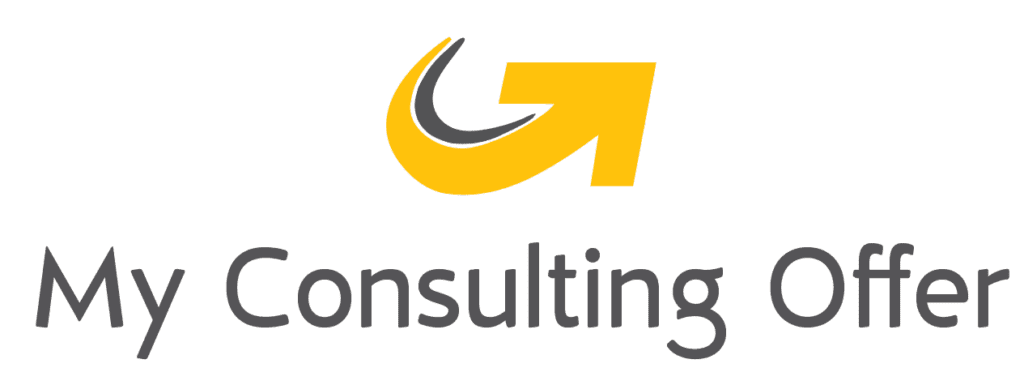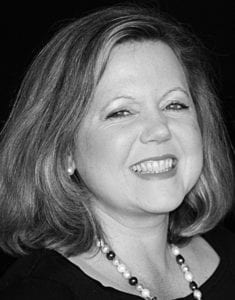10 Questions to Ask During a Consulting Informational Interview
- Last Updated March, 2025
![]()



![]()


Former McKinsey Engagement Manager
Breaking into the consulting industry is tough and, for most people, requires a considerable amount of networking.
Early informational interviews can provide huge insight into what a job as a management consultant is like and what skills are needed to land an offer at a top consulting firm.
Once you land a consulting informational interview, what questions should you ask?
At My Consulting Offer, we have over 50 team members who are ex-Bain, BCG, and McKinsey consultants and recruiters.
We can help you prepare for your consulting informational interview, for submitting your applications to consulting firms, and for prepping for consulting case interviews.
In this article, we’ll discuss:
Let’s get started!
Informational interviews are important no matter what type of career you’re targeting.
Consulting informational interviews are particularly important because the work this job entails on a day-to-day basis is pretty nebulous to people outside the industry.
Consulting informational interviews allow you to get a good sense of what types of problems consultants solve and what a consulting case looks like from beginning to end.
You’ll also get a good sense of the skills you need to succeed in consulting and learn how to exhibit your skills and experience in the best light possible in your resume and cover letter and during your interviews.
Consulting informational interviews can come from:
Consultants work long hours. While most consultants want to give back and help others break into the industry, you’re asking for their scarce free time.
It’s easiest to get someone to agree to make time for you if you have a connection.
The closest connections are friends and classmates. The next closest connections are alumni of the school you attend or schools have attended. Reach out to these connections before contacting strangers.
Also, focus on consultants working at firms you’re particularly interested in. For example, if you want to work for a life science consulting firm, it’s best to target firms specializing in this type of consulting.
This way, you’ll find out about the type of consulting career that most interests you.
If you do need to reach out to people you have only a distant relationship with or no relationship at all, check LinkedIn or other social platforms to learn more about them and find any interests or experiences you have in common.
Many management consulting firms set up times when their consultants and recruiters will be on college campuses and available for informal discussions about their firm and careers in consulting. These “coffee chats” can be either group discussions or one-on-one.
This year, because of concerns about COVID-19, many firms are hosting virtual coffee chats. We’ve heard that all of Bain’s fall events will be virtual this year.
Whether these events are in-person or online, they are invaluable. Take advantage of these coffee chats!
They are a great first step in getting up to speed on what a consulting career looks like and how to prepare for the application process.
Coffee chats are a low-key way to get smart about careers in consulting and prepare for further research and your application.
 The best questions to ask in Consulting Informational Interviews are:
The best questions to ask in Consulting Informational Interviews are:
Questions that show you care about the other person’s experience or that put them in a positive frame of mind will be more interesting for them to answer and will lead to a richer discussion. In the end, they’ll help you to learn more.
Here are 10 great questions you can ask:
Use these questions as a starting point. It’s always best to find out who you’ll be meeting at a coffee chat, read their bio, and adjust your questions accordingly.
If your coffee chat is with a recruiter rather than a consultant, questions about the recruiting process would be more appropriate than questions about experience on cases.
Before your consulting informational interview, carefully read the Careers web-page of the firm your contact works for. Don’t ask any question that is answered on that website or could otherwise be found with a quick Google search. It’s a waste of your time and the consultant’s.
Examples:
These questions are clearly answered on the career pages of many consulting firms.
You can ask next-level questions.
For example:
“I see that you also had a liberal arts major when you attended [School]. How did you prepare for case interviews?”
“I saw that you worked in both San Francisco and London, how did you decide between those locations?”
Tailoring your questions to the informational interviewer shows that you did your research and are respectful of the consultant and their team’s time.

Recruiters at the major consulting firms typically contact college and university Career Services Departments. They provide overviews of their firm, descriptions of the positions they are looking to fill, and information on the type of candidates they want to hire.
Like questions that can be Googled, you shouldn’t ask these questions. Read your school’s Career Services Department’s website and have answers to these questions before your consulting informational interview.
Examples:
If you don’t attend a core school for the consulting firms you are targeting, reach out to a recruiter in the office(s) you’re most interested in with questions on the recruiting process.
Remember that the consultants you’re reaching out to for informational interviews or speaking with during consulting coffee chats are busy. They’re putting in 60+ hours a week on client work and doing recruiting and other activities in their “spare time.”
Also, many other applicants from your school and others are reaching out to them.
Make good use of the consultant’s time.
Ask a few thoughtful questions, not an endless list of all the questions you can think of. This will ensure you stand out in their mind for good reasons.
You don’t want to stand out in their mind as someone who monopolized their time.
Examples:
Questions that can be answered with one word do not invite conversation that will help you learn more about the consulting industry or help you build rapport with your interviewer.
Examples of questions that can be answered with one word:
After your interview, send a quick thank you note that sums up what you learned from the discussion, expresses your excitement about the field of consulting, and says thank you for the time your contact gave you. Thank you notes are appreciated and will position you favorably in the contact’s mind.
You are probably wondering, “What should I do next to keep the relationship going?”
There are many ways you can keep in touch with the person you just had an informational interview with and continue to build the relationship. Optimally, you want them to be a supporter at the firm you’re applying to and a potential referral once you apply.
Davis and Leah talk a lot about different ways to keep relationships going in this workshop, but one method we want to highlight is to follow up periodically via email with the person you connect with to:
This is one of the easiest, but seldom used ways to keep a relationship going.
In this article, we’ve covered:
If you have more questions about consulting informational interviews, leave them in the comments below. One of My Consulting Offer’s case coaches will answer them.
Other people preparing to apply to management consulting firms found the following pages helpful:
Watch how Sharmeen landed her BCG offer with the help of My Consulting Offer’s proven preparation strategies!

Sharmeen reflects on her journey from healthcare administration into consulting and how My Consulting Offer supported her every step of the way. Through the program, she: